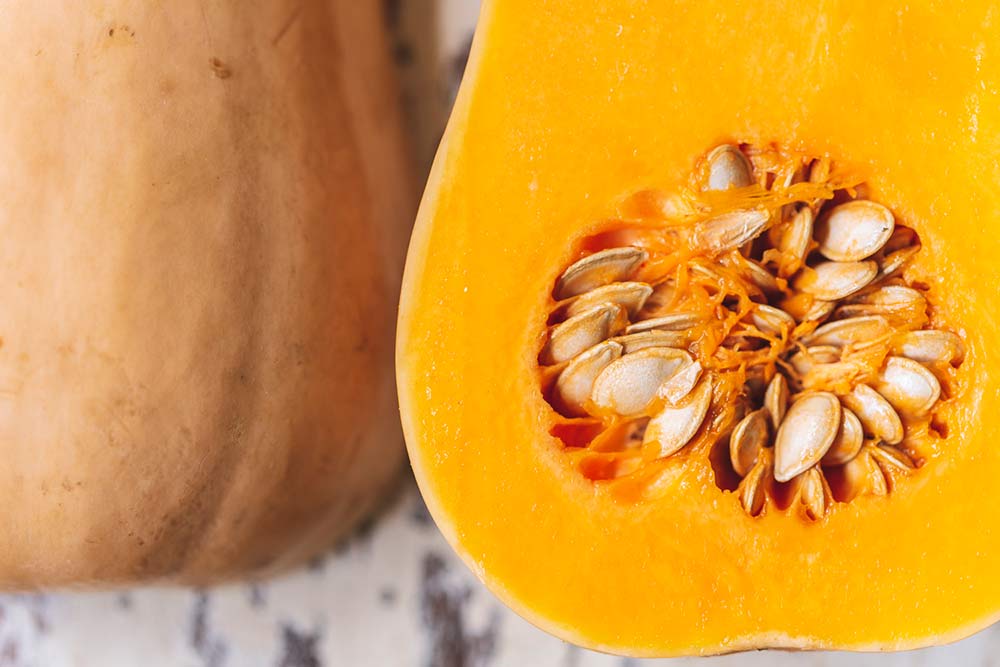I arrived at our farm in the Vendée, France, to see the combine harvester pouring the last of our sunflower seeds into the waiting trailer.
The crop was barely ready, but our team took their chances and made their own luck; with the harvest in the barn and dark clouds gathering, there was just time for a celebratory beer before the first clap of thunder. The ensuing deluge would have ruined the sunflowers, whose bowed heads are notoriously prone to rain damage.
I had hoped we would set up our own press and supply you with fresh organic oil, but commercial reality dictates that we are just too small to clean, dry and press viably. Another under-researched pipe dream bites the dust. The local co-op will pay us a paltry €300 per tonne, and the oil will join the lake of a globally-traded commodity.
Most of our staff in France are busy harvesting a bumper crop of Butternut squash. After too many of our Devon crops failed to ripen, and disappointed in the kitchen, we decided to grow them here. We get twice the yield of sweeter, harder-skinned fruit, that keep better, with half the diesel, seeds and crop covers used in their cultivation.

However counter-intuitive, local is not always best. There are strong arguments for growing a crop on the right soil, in the right climate. Despite 250 miles on a lorry to get home, I strongly suspect our French squash have a smaller environmental footprint than the Devon crop used to.
We picked the last Padron peppers, sweet peppers, lettuces and cucumbers last week and will harvest the last aubergines this week. There is still 15 tonnes of Calabrese broccoli to harvest which, if it survives, will carry us through to mid November when the Spanish crop starts. With falling light levels and typically heavy seasonal rain expected, we are pushing our luck taking the crop this late. After two good years, luck may be running out; the crop has taken on the washed-out look and telltale seaweed smell that precedes premature yellowing.
Beds are prepared for the first lettuces that will be sown next month under glass, for planting outside in January. Even on our sandy, well-drained land, we can’t be confident of soil conditions allowing us to make a seedbed in the next three months. With just broccoli and oca to harvest, all that is left to do is tidy up, work out if we have made any money, plan for another year. Oh yes, and worry about Brexit.













We really enjoy rapeseed oil, seems to grow pretty well in the UK, one to try over sunflower?
Please don’t cover any more of the countryside with the dayglo yellow Hay Fever Special!
Shame the sunflower seeds couldn’t be sold as seeds. Some of us would pay for organic ones to add to bread as long as you could get them hulled.
I grew some plants this year, much to my pleasure, from accidental leftover seeds found in the paper bag you sent last years free-for-the- birds sunflower heads out in. I have left the rather small heads on the plants for the birds to eat in the winter. Suppose I should save a few seeds for next year…
It would be good if products carried estimated carbon emissions (including transportation), so that one could select lowest and also not buy if one considered a reasonable threshold had been exceeded.
With regard to Denby’s comment, Yes, I find it really difficult to source organic European sunflower seeds. They mostly seem to be sourced from China.
…the same with regard to organic pumpkin seeds.